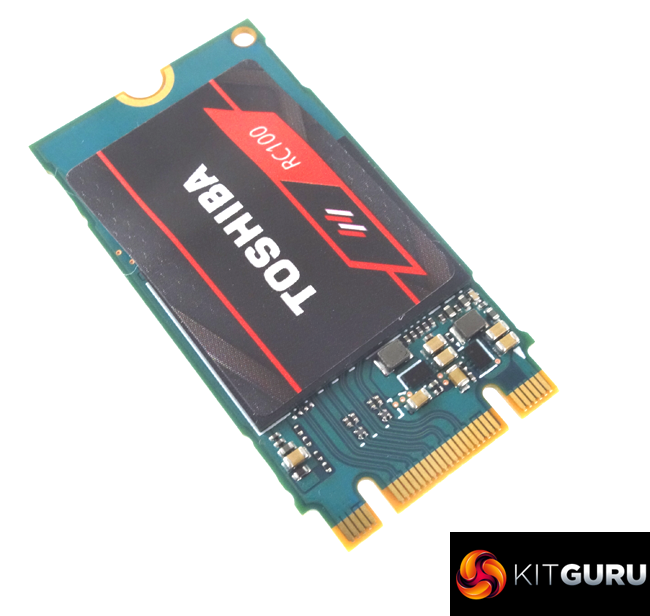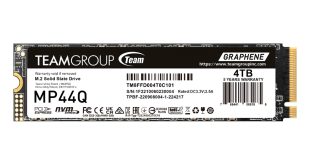The RC100 is Toshiba's second NVMe consumer drive, and the company's first drive aimed at the entry level NVMe market. It's a sign of just how fast technology is advancing that we actually have an entry level market segment for this type of drive. Even just a year ago mentioning ‘NVMe' and ‘entry level' in the same sentence was not realistic.
The RC100 is also the first NVMe drive we have seen built on a 2242 format and it will interesting to see if any other manufacturers follow Toshiba's lead by offering small format NVMe SSDs in the entry level market.
There are a couple of limitations going down this design route – there's not enough space for any DRAM cache and the interface is limited to PCIe x2. The first of these can be dealt with by something called Host Memory Buffer (HMB). HMB was part of the NVMe Rev 1.2 specifications. It allows a drive to have access to part of the host system's main memory to use as a small scale cache.
The second limitation, namely being confined to a PCIe x2 interface, isn't such a problem when the drive is aimed at the entry level market, as even running at PCIe x2 the drive's outright performance will be much faster than a SATA based SSD.
Toshiba quotes sequential read/write performance for the 240GB RC100 drive at up to 1,600MB/s for reads and up to 1,050MB/s for writes, which when you consider that you are talking about a drive that's about as big as your thumb (or even smaller) is pretty special. Incidentally, we could confirm both of these figures with the ATTO benchmark.
However, we found the 4K random performance of the drive to be a mixed bag. In the single thread Q1 4K CrystalDiskMark test it did very well, beating several more powerful drives, and it performed well at QD1 in our 4K sustained random read test. In our series of 4K random write tests, however, the drive got overwhelmed resulting in very high latency figures with correspondingly low IOPS figures. We couldn't get anywhere near the official ‘up to' 130,000 IOPS read or 10,000 IOPS write figures.
The drive also did very well in our long term performance stability test and although it only averaged 37,041 IOPS for the test, it did so with a stability of 73.53% which is very good for this market segment.
With an active power consumption of 3.2W, Toshiba claims that the RC100 consumes approximately 70 percent of the active power draw of enthusiast NVMe which makes it an ideal drive for ultrabooks.
We found the 240GB Toshiba OCZ RC100 on Novatech for £64.44 (inc VAT) HERE.
Pros
- It's tiny.
- BGA design.
- Price.
Cons
- 4K performance is disappointing.
KitGuru says: It's interesting to see Toshiba take this route for their first entry level, consumer NVMe drive. Its size makes it ideal for very small form factor PCs or ultrabooks where its low power requirement will help with saving battery life.
Be sure to check out our sponsors store EKWB here
 KitGuru KitGuru.net – Tech News | Hardware News | Hardware Reviews | IOS | Mobile | Gaming | Graphics Cards
KitGuru KitGuru.net – Tech News | Hardware News | Hardware Reviews | IOS | Mobile | Gaming | Graphics Cards




